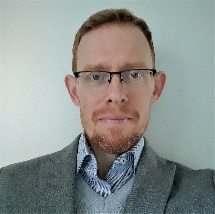
Stuart A Jones
King’s College London, UK
Title: Innovative solutions for decentralised clinical trials
Biography
Biography: Stuart A Jones
Abstract
Decentralized clinical trials (DCTs) are trials "where some or all of the trial-related activities occur at locations other than traditional clinical trial sites"(1). They offer opportunities to collect relevant, real-world, real-time clinical data and to enhance clinical trial quality, recruitment and completion. However, to realize these advantages digital health technologies (DHTs), which are at the heart of DCTs, must robustly measure clinical outcomes, enable secure data transmission, and facilitate effective large data set processing.
DHT use in clinical trials has been increasing (less than 1% in 2010 to more than 10% in 2020) and this will allow refinement of their deployment and applications (2). However, whilst DHT’s are capable of real-time remote monitoring of treatment a 2021 systematic review, which reported 45 randomized and controlled DCTs, showed that of the 30 cited completed trials, none used real-time monitoring (3). Except for several pilot studies in neurology, this trend has been sustained with only a limited number of large prospective DCTs using used DHTs for real-time data monitoring (4). Experience has therefore shown that paper-based elements of trials can be digitized, but there are few large prospective trials that have embraced real-time data collection using digital devices.
Although commercial data collection devices are being evaluated for use in DCTs, they were not designed for this purpose and are available for a limited number of clinical outcome measurements (5). Given the potential rewards of wider DCT implementation, now is the time to invest both effort and money into engineering the necessary new data collection, transfer and analysis tools. We call on clinicians, patients and trial managers to work with engineers and analysts to produce a new generation of data collection devices and data analysis tools that function effectively in real-world environments and meet the needs of the global regulatory frameworks for evaluation of new medical interventions.

